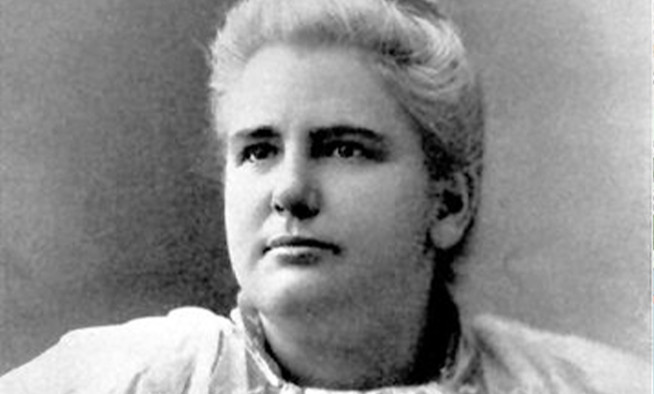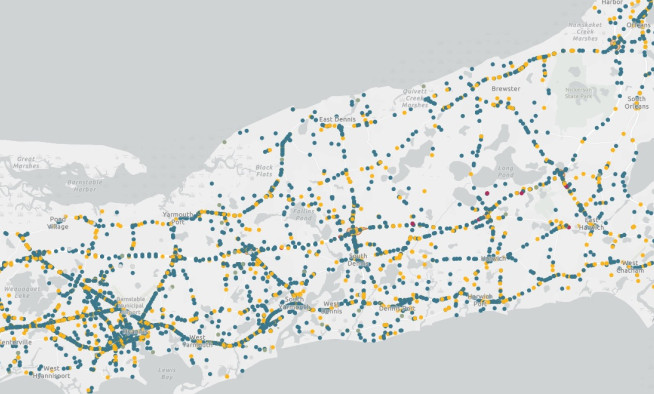Traffic technicians spend summers collecting data along Cape Cod's roadways
A trio of traffic technicians clad in bright yellow safety vests spends the summer months collecting various data from our region's roadways. The data collected informs transportation studies and planning projects, such as the annual Transportation Improvement Program, the Regional Transportation Plan, which is updated every five years, and location-specific efforts like the upcoming Station Avenue Corridor Study.
On a Monday in early June, the traffic technicians, along with Cape Cod Commission Senior Transportation Planner David Nolan, were positioned along Station Avenue, laying tubes across the pavement. The tubes are used to collect data on the vehicles that pass by. When a car, truck, or bus drives over the air-filled line, it sends pulses to a collection box that translates them into data, including speed and vehicle size. The tubes also collect the number of vehicles traveling in each direction.
During the summer, traffic technicians are setting up and breaking down counters across the region. Typically in place for 48 hours during the middle of the week, the counts provide a picture of the typical use of Cape Cod's various roadways. The traffic technicians will collect data from more than 200 locations this summer using tube counters or more inconspicuous radar.
The Cape Cod Commission recently began collecting data along the Cape Cod Rail Trail. A test of new sensor-based technology is taking place in several spots, collecting data on the frequency and number of users along the popular route.
Technicians perform visual counts during the busy 4th of July week. As the roads are typically too busy to perform traditional traffic counts, technicians will visit village centers to observe the ways in which people get around downtown, including by bike or on foot.
Traffic technicians also travel around the region to collect data on pavement conditions. Technicians log observations using an application designed by Cape Cod Commission staff, and an interactive map on the Commission's website displays the data.
The Cape Cod Commission's traffic technician program is a paid summer internship. This year, Evan Costa has returned for his third summer. He's a 2022 graduate of the University of Massachusetts Dartmouth (UMass Dartmouth) Civil Engineering program.
"These three summers as a traffic technician will definitely help me further my career,” said Costa. "Each summer has been unique and provided new opportunities and projects." In July 2022, Costa joined the Cape Cod Commission staff as a full-time Transportation Planner/Engineer.
New to the program this year are Michael McLoughlin, a junior Civil Engineering major at Worcester Polytechnic University, and Isabella Alves, heading into her final year at UMass Dartmouth studying Civil Engineering.
"It has been fun and challenging at the same time," McLoughlin said about his experience so far. "There is the perfect amount of structure to guide us in the right direction, but also allows us to problem solve in the field which is the best part of the job."
Many former Commission traffic technicians enjoy successful careers in their field. Former traffic technicians can be found working as senior transportation planners, planners, and traffic engineers at consulting firms – and even, in the case of former traffic technician Steven Tupper, as Deputy Director of the Cape Cod Commission.
Related Posts




